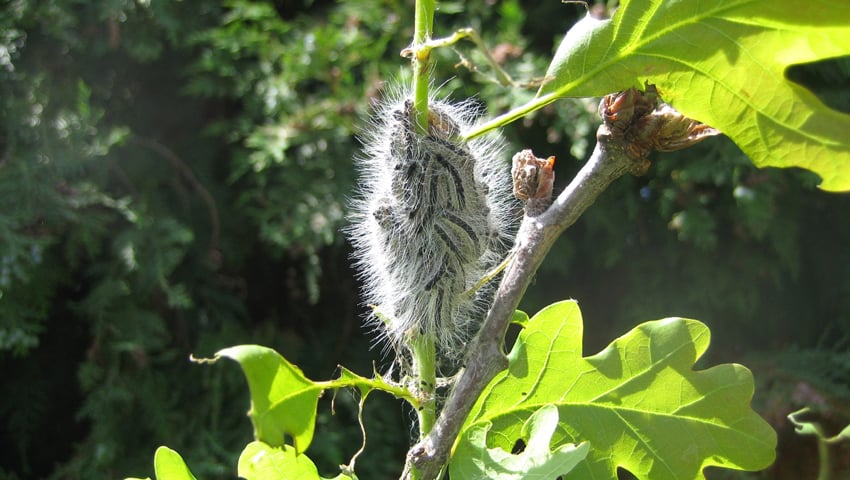The battle against tree-disease spreading beetles such as the Emerald ash borer and the larger eight-toothed spruce bark beetle has taken a significant step forward today thanks to new government funding unveiled.
The funding will pay for a new £4m research and containment facility at the UK’s Forest Research Alice Holt Research Station in Surrey and will better equip the country in managing the risks posed by these harmful pests and pathogens, in plans unveiled by Defra and the Forestry Commission as part of National Plant Health Week.
The new facility will expand the capacity of the existing Holt containment laboratory by almost double. This will boost capability to study pests and pathogens in a contained and controlled environment – enhancing our national response and facilitating safe international trade.
Statistics released by Forest Research today show there were 2,350 tree pests and diseases reported via the TreeAlert service from April 2023-March 2024.
By assessing the pests and pathogens in a contained laboratory, scientists from Forest Research – Great Britain’s primary organisation for forestry research – will be able to study them in a safe and controlled manner using cutting-edge technology and equipment to safeguard our treescapes.
Defra Chief Plant Health Officer Professor Nicola Spence said, “Pests and diseases are a threat to our nation’s trees and plants. They cause significant damage, economic losses and in many cases tree death. Tackling them is a key part of commitments set out in our world-leading Plant Biosecurity Strategy to protect our nation’s plants and trees. Funding this new facility at Alice Holt will boost our capacity in the fight against new and emerging threats and help us maintain some of the strongest biosecurity measures in the world.”
Forestry Commission Chair Sir William Worsley said, “Trees and woodlands support our wellbeing, and are home to some of our most treasured species. The play an important role in tackling climate change. It is vital that we expand our research to counter new tree health outbreaks which are a threat to our nation’s trees. This new facility at Forest Research’s renowned Alice Holt Research Station will boost and expand our response to ensure trees are resilient for the future.”
Due to a changing climate, there has been a rise in the number of pests and recent years have seen an increase in the eight-toothed spruce bark beetle Ips typographus and ongoing responses to Phytophthora ramorum and oak processionary moth. The laboratory will also help prepare for known threats which are not currently present, such as Emerald ash borer – an exotic emerald coloured beetle from Asia which has spread to North America and caused significant damage to ash trees – and Xylella, a ferocious bacterial disease which has devasted olive trees in France and Italy.
The announcement supports delivery of the Plant Biosecurity Strategy for Great Britain, which committed to work with the industry and general public to protect the country’s plants from risks posed by pests and pathogens. The new facility will boost capacity for research on regulated pests and pathogens and ensure we can better respond to future threats.
The government has ambitious targets to increase tree canopy and woodland cover in England to at least 16.5% by 2050 and continues to take action to meet this with more than 15 million trees having been planted this parliament, with future proofing our forests from disease a key part of our plans to increase tree cover.
Public vigilance is a key part of the fight against tree pests and diseases. You can look out for any unusual symptoms – like leaf discolouration or ‘bleeding’ lesions – on trees and report any sightings via TreeAlert, the GB’s online tree pest and disease reporting tool.
